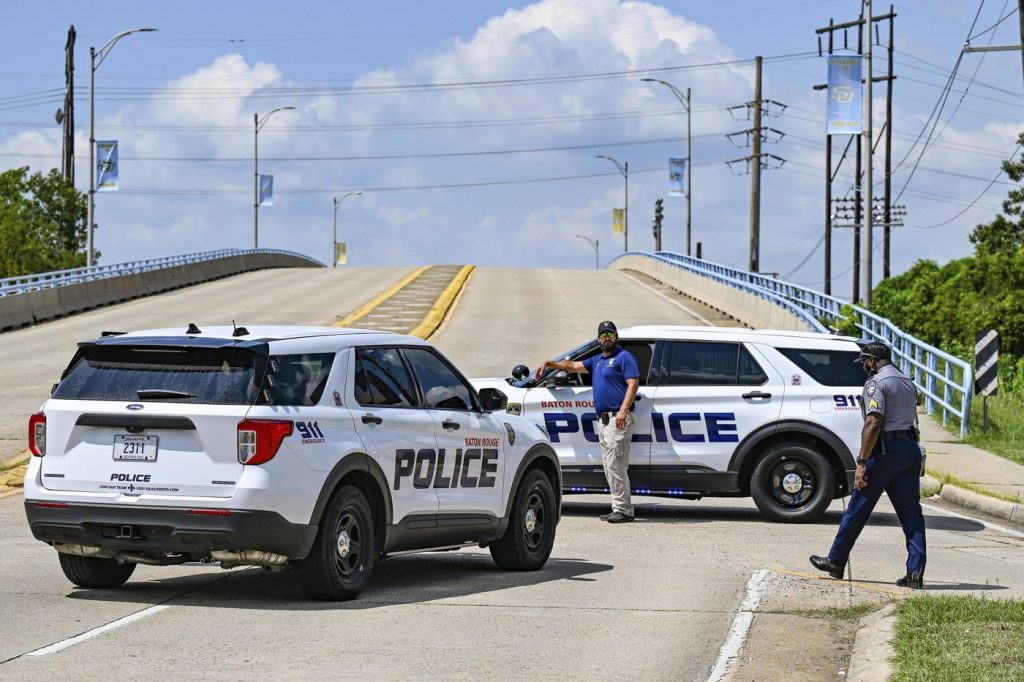MISSION, Kan. — In recent weeks, approximately 50 college campuses across the United States have received hoax calls regarding armed gunmen and other violent threats. This surge in swatting incidents highlights the difficulties in swiftly identifying fake threats to mitigate potential panic among students and staff.
Students at various institutions have experienced terrifying situations, hiding under desks for extended periods, only to discover that the threats were mere pranks. On a Thursday, several historically Black colleges chose to lock down or cancel classes following threats, coinciding with heightened tensions stemming from the recent shooting of conservative activist Charlie Kirk at a college in Utah.
Although some educational institutions recognized the hoaxes early, these incidents still required considerable time and resources to address. The FBI is currently involved in investigating these threats, but no arrests have yet been made.
Dispatch call centers have become critical in combating swatting incidents, especially given the increasing prevalence of mass shootings in the country. This week alone, there was a shooting at a suburban Denver high school, and just two weeks ago, a shooting at a Catholic church in Minneapolis resulted in the deaths of two schoolchildren and injuries to 21 others.
Wendy Via, co-founder and CEO of the Global Project Against Hate and Extremism, emphasized the gravity of the situation, stating, "We have so many mass shootings in this country and so many young people die. And so you can’t just blow it off because there has been a bunch of hoaxes."
Swatting calls are on the rise. The intent behind swatting is to provoke law enforcement, particularly SWAT teams, into responding to a false emergency. This practice has evolved from fake bomb threats over the years. Initially, swatting stemmed from online gaming disputes but has gradually become associated with extremist groups that share tactics in online forums to evade detection.
The FBI noted an uptick in swatting incidents. A dedicated center established in 2023 has already gathered thousands of reports from law enforcement agencies across the country. The U.S. Department of Education has even issued guidance on identifying hoax calls, recommending vigilance for signs such as a caller’s inability to answer follow-up questions about their location or mispronouncing names.
The group known as Purgatory, linked to a network of online threat actors, has been associated with some of the recent hoax calls. Reports from various nonprofit organizations that track extremist activities provide insight into these operations. In recordings, voices can be heard laughing and engaging in casual banter during the calls.
Keven Hendricks, a cybercrime expert, expressed frustration over the absurdity of these hoaxes, remarking, "We want there to be a reason they were doing it, and they were doing it for the LOLs."
A recent swatting attempt at Kansas State University exemplified how to identify a hoax. The initial red flag was the call originating from a non-emergency police number instead of 911. Major Daryl Ascher of the Riley County Police Department confirmed that emergency calls are geolocated, meaning calls from distant areas should not reach the local dispatch center.
Another indication was the caller's mistake in naming the university, referring to “Kansas City State University” instead of “Kansas State University.” Ascher noted that anyone familiar with the area would know the correct name. Additionally, the description of an armed man in the library matched similar reports, further indicating a false alarm. Dispatchers remained skeptical, asking the caller why no other emergency calls were being received about the supposed situation.
Ultimately, officers were dispatched to investigate, but they were informed of the potential for a hoax. Ascher remarked on the taxing nature of these hoaxes on law enforcement, noting, “I often wonder if people don’t have something better to do.”
The impact of these swatting incidents extends beyond law enforcement, affecting students who have endured multiple active shooter drills and alerts. Miceala Morano, a senior journalism major, expressed her concern about the potential desensitization to these alerts, stating, “I hope we’re not desensitized enough to the point where we don’t take these alerts seriously anymore.”











